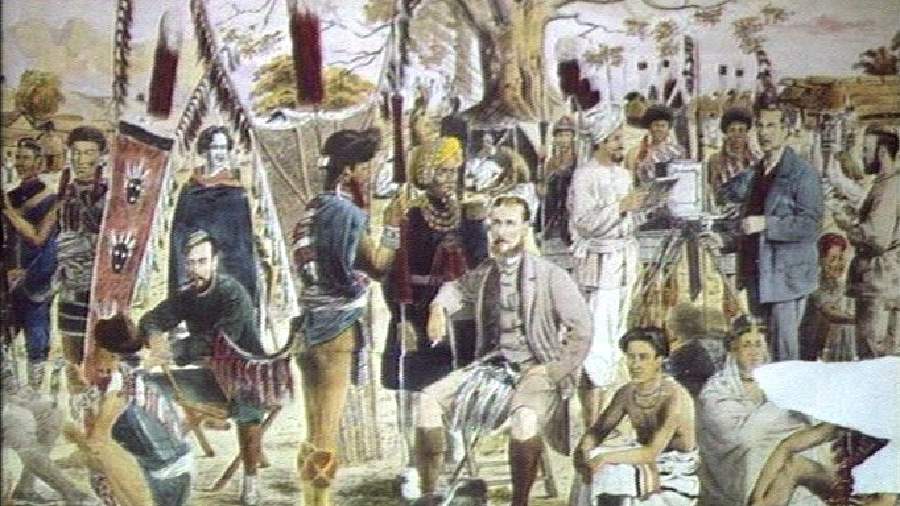The British East India Company was founded on this day. Its activities would transform the history of India.
A joint-stock company based in London, it was granted an English Royal Charter by Queen Elizabeth on December 31, 1600. The charter allowed the newly created Honourable East India Company (HEIC) a 21-year monopoly on trade with all countries east of the Cape of Good Hope and west of the Straits of Magellan.
The company created the British Raj in India. In 1617, it was given trade rights by the Mughal Emperor Jehangir. In 1717, it was exempted from custom duties in Bengal. The victory by Robert Clive at the Battle of Plassey in Bengal in 1757 established the company as a military and ruling power over Indian territory even as it continued extensive commercial activities of exploiting Indian resources. This contributed immensely to the growth of the British economy. The company had also driven away other European trading companies.
Indian policy of the company until 1773 was influenced by shareholders. The Regulating Act (1773) and William Pitt the Younger’s India Act (1784) led to government control of Indian matters. The company lost its commercial monopoly in 1813. The British crown took over the administration of India after the 1857 Uprising and in 1873, the company ceased to exist as a legal entity.
The Times wrote in April, 1873: “It accomplished a work such as in the whole history of the human race no other trading Company ever attempted, and such as none, surely, is likely to attempt in the years to come.”
